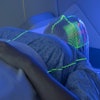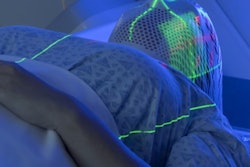Stereotactic body radiation therapy (SBRT) offers a new treatment option for older patients with inoperable kidney tumors, according to research presented October 1 at the American Society for Radiation Oncology (ASTRO) annual meeting in San Diego, CA.
Shankar Siva, PhD, of the Peter MacCallum Cancer Centre in Melbourne, Australia, presented findings from an international phase II trial of focal ablative SBRT for kidney cancer. The treatment showed "unprecedented efficacy" for patients, he said.
"Our research clearly defines a new population of patients who will benefit from stereotactic radiation. These patients often don’t have other viable treatment options, so we are excited to see that radiation therapy can be effective for them," Siva noted.
SBRT can shrink or destroy tumors by targeting them directly with high doses of radiation using linear accelerators. These treatments are performed in a small number of outpatient sessions and so far, the approach has shown promise in small studies. This is the first study to test SABR for treating liver cancer in a large clinical trial, Silva noted.
Between July 2016 and February 2020, the group recruited 70 patients diagnosed with inoperable, high-risk kidney tumors or who had declined surgery for their renal cell cancer. The median patient age was 77 years old, and patients had single lesions. Patients with tumors smaller than 4 centimeters received a single fraction of radiation (n=23), and those with tumors larger than 4 centimeters received three fractions (n=47).
According to the findings, over a median of 43 months, none of the patients experienced a local progression of their kidney cancer, nor did any patients die from cancer. Overall survival was 99% one year after SBRT and 82% at three years. One patient experienced a distant recurrence of their cancer, Silva said.
In addition, side effects were relatively modest, with the researchers observing no grade 4 or 5 toxicities.
"Our study demonstrated that a novel treatment delivered in an outpatient setting is able to achieve unprecedented efficacy for patients with inoperable kidney cancer," Silva said.
Ultimately, the incidence of kidney cancer in older adults is increasing globally, with the greatest increase in people over 70, Silva said. Yet many older patients face challenges (high blood pressure or diabetes, for instance) that make it difficult to treat them surgically – either by removing the tumor or the entire kidney, he said.
"There’s an unmet need for curing this type of cancer, and our findings point to the potential of radiation therapy to address that need," Silva concluded.



















